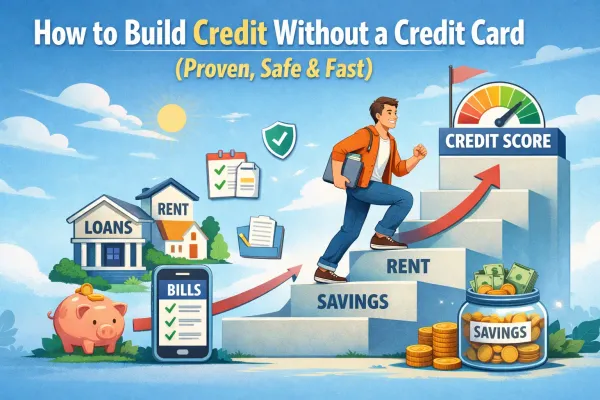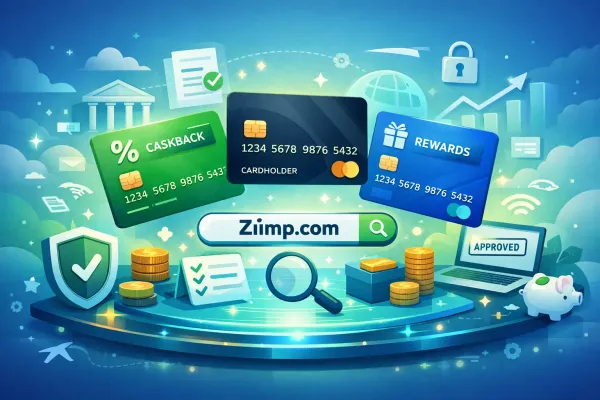Parent PLUS Loan vs. Private Student Loans
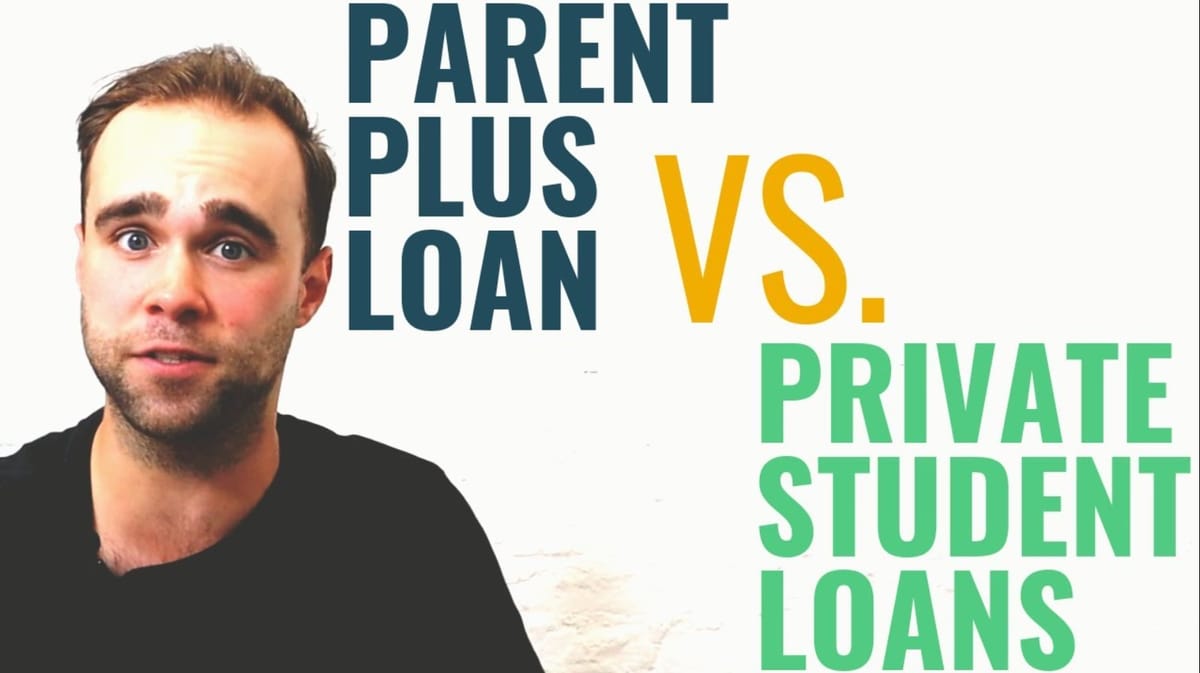
As the cost of higher education continues to rise, many families are turning to loans to help fund their children’s college education. Two of the most common options for financing education are Parent PLUS Loans and Private Student Loans. Each of these loan types has its own benefits, drawbacks, and specific criteria, making it crucial for families to understand their differences before making a decision. In this article, we’ll dive deep into both loan options, exploring their pros and cons, eligibility requirements, repayment options, and more to help you choose the right loan for your family’s needs.
What is a Parent PLUS Loan?
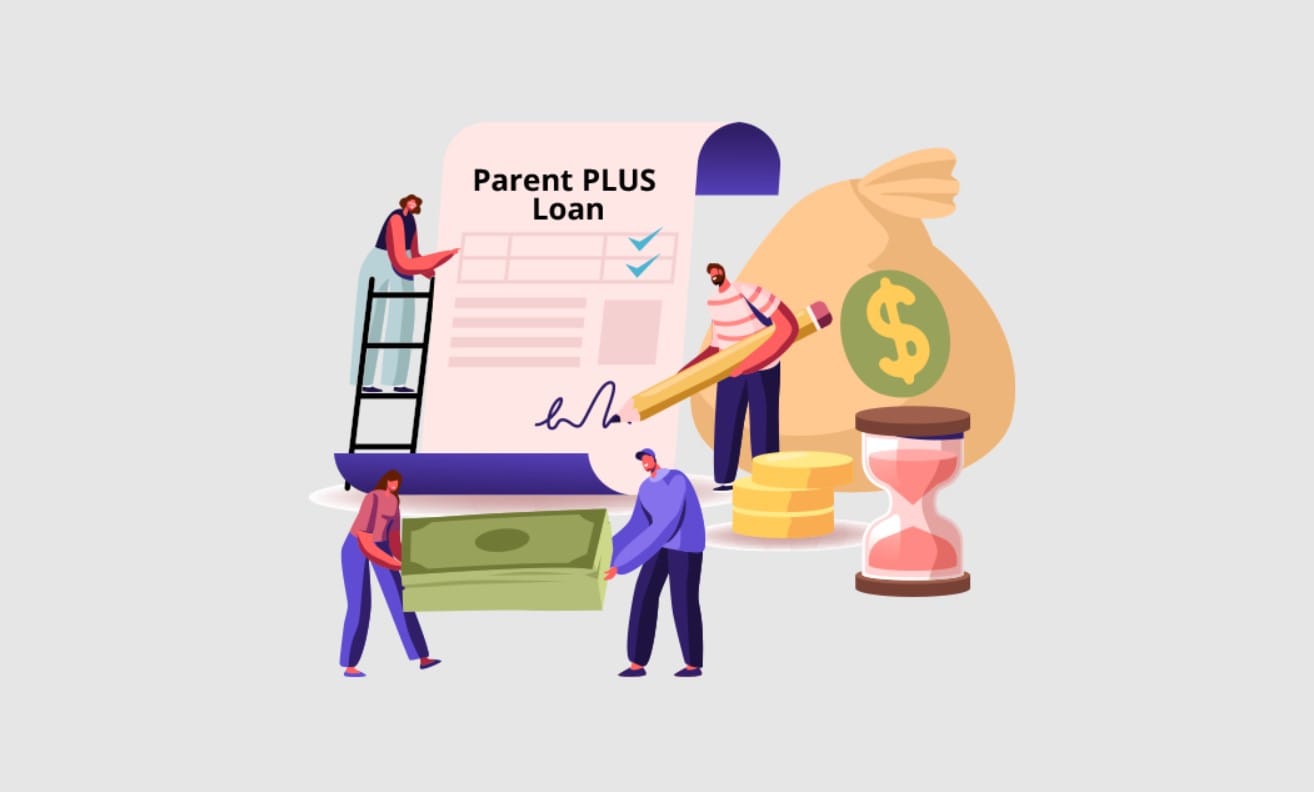
The Parent PLUS Loan is a federal loan offered by the U.S. Department of Education. It is specifically designed for parents of dependent undergraduate students who are seeking financial assistance for their child's education. This loan is part of the Federal Direct Loan Program, and it helps parents cover educational expenses not met by other financial aid options, such as grants and scholarships.
Key Features of Parent PLUS Loans
- Federal Loan: Backed by the government, providing certain protections and flexible repayment options.
- Borrower: Only parents of dependent undergraduate students can apply.
- Fixed Interest Rate: Parent PLUS Loans come with a fixed interest rate, which is determined annually by the government. The rate remains the same throughout the life of the loan.
- Credit Check: While the loan does require a basic credit check, it’s not as stringent as the credit requirements for private loans.
- Loan Limits: Parents can borrow up to the full cost of attendance at the student’s school, minus any other financial aid received.
- Repayment Options: There are several flexible repayment options, including deferment and forbearance during times of financial hardship.
What Are Private Student Loans?
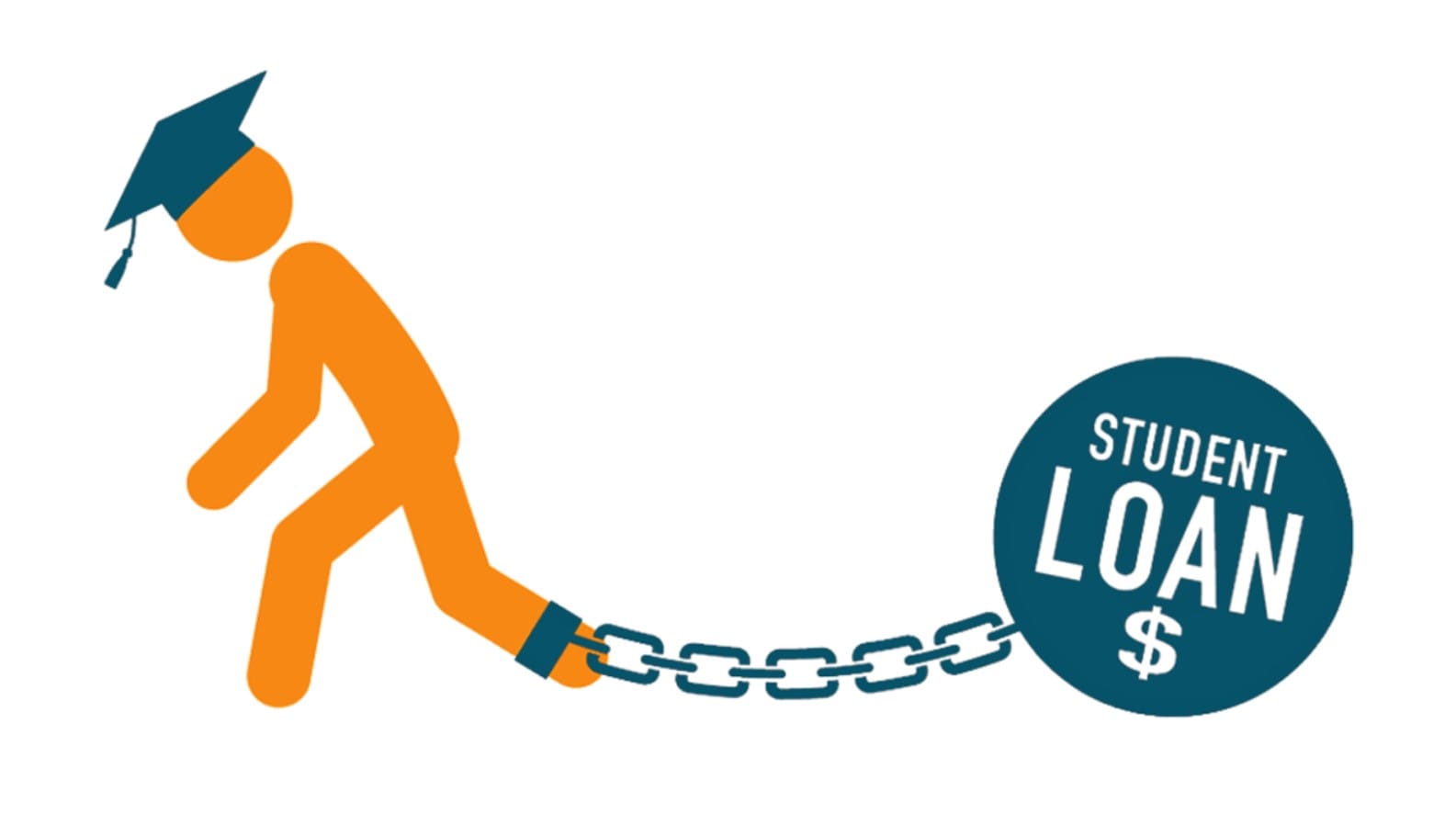
Private Student Loans are issued by private lenders such as banks, credit unions, or other financial institutions. Unlike federal loans, private student loans are not backed by the government, meaning they often come with less flexible terms and more stringent credit requirements. However, they may offer competitive interest rates, especially to borrowers with strong credit histories.
Key Features of Private Student Loans
- Private Lenders: Offered by banks, credit unions, and other financial institutions.
- Borrower: This can be taken out by students themselves (often with a co-signer) or parents, depending on the lender’s terms.
- Variable or Fixed Interest Rates: Borrowers can often choose between a fixed or variable interest rate, depending on their financial situation and preference.
- Credit Requirements: Lenders conduct a comprehensive credit check, and borrowers with better credit will often receive lower interest rates.
- Loan Limits: Loan limits vary by lender but are typically capped at the cost of attendance minus other aid received.
- Repayment Options: Less flexibility than federal loans, with fewer protections during financial hardship.
Parent PLUS Loan vs. Private Student Loans: Eligibility Criteria
When choosing between Parent PLUS Loans and Private Student Loans, one of the first things to consider is the eligibility criteria. While both loans have their own set of requirements, they differ significantly in how they evaluate borrowers.
Eligibility for Parent PLUS Loans
- Who Can Borrow: Only parents (biological, adoptive, or in some cases, stepparents) of dependent undergraduate students are eligible to apply for a Parent PLUS Loan. The student must be enrolled at least half-time in an eligible program.
- Credit Requirements: Although Parent PLUS Loans require a credit check, the credit review is less stringent than that of private loans. Borrowers with an adverse credit history (such as recent bankruptcies or significant delinquencies) may be denied, but they may still be eligible if they can find an endorser (similar to a co-signer) or document extenuating circumstances.
- Income and Debt-to-Income Ratio: Parent PLUS Loans do not take income or debt-to-income ratio into account when determining eligibility.
Eligibility for Private Student Loans
- Who Can Borrow: Private student loans can be taken out by students or parents, but in most cases, undergraduate students will need a co-signer (often a parent) to qualify for a private loan. Some lenders also offer loans specifically for parents.
- Credit Requirements: Private lenders perform a comprehensive credit check and often require a strong credit history for approval. Borrowers with high credit scores are more likely to qualify for lower interest rates.
- Income and Debt-to-Income Ratio: Lenders will typically review income and debt-to-income ratio to assess the borrower’s ability to repay the loan.
Interest Rates: Parent PLUS Loan vs. Private Student Loans
One of the most critical factors to consider when comparing loans is the interest rate, as it has a direct impact on the overall cost of the loan. Let’s examine the interest rates for both Parent PLUS Loans and Private Student Loans.
Interest Rates for Parent PLUS Loans
- Fixed Rate: Parent PLUS Loans come with a fixed interest rate, meaning the rate remains the same for the life of the loan. For the 2023–2024 academic year, the interest rate for Parent PLUS Loans is 8.05%. This rate is set by Congress and is based on the 10-year Treasury note plus a fixed percentage.
- No Borrower Discounts: Unlike private loans, Parent PLUS Loans do not offer discounts for automatic payments or loyalty programs.
Interest Rates for Private Student Loans
- Variable or Fixed Rates: Private student loans can have either variable or fixed interest rates. Variable rates may start lower than fixed rates but can fluctuate over time based on market conditions. Fixed rates offer predictability but may be higher than variable rates.
- Credit-Based: Interest rates for private student loans are typically based on the borrower’s credit score, co-signer’s credit score (if applicable), and other financial factors. Borrowers with excellent credit may qualify for interest rates as low as 3%–4%, while those with poor credit may face rates similar to or higher than Parent PLUS Loans.
- Rate Discounts: Many private lenders offer discounts for setting up automatic payments or being a loyal customer, which can help reduce the interest rate.
Loan Limits: How Much Can You Borrow?
Loan limits dictate how much you can borrow to fund education costs, and they vary depending on whether you choose a Parent PLUS Loan or a Private Student Loan.
Parent PLUS Loan Limits
- Cost of Attendance: Parent PLUS Loans allow parents to borrow up to the total cost of attendance at the student’s school, minus any other financial aid the student receives. This includes tuition, room and board, books, supplies, and other educational expenses.
- No Aggregate Loan Limit: There is no aggregate loan limit for Parent PLUS Loans, meaning parents can borrow as much as needed to cover the full cost of their child’s education each year, provided they pass the credit check.
Private Student Loan Limits
- Varies by Lender: Private student loan limits vary widely depending on the lender. Some lenders allow borrowers to take out loans that cover the full cost of attendance, while others have lower limits.
- Annual and Aggregate Limits: Some private lenders set annual limits, which cap the amount you can borrow each year, and aggregate limits, which cap the total amount you can borrow throughout your education.
- Credit and Income-Based: The loan limits for private loans may also depend on your credit history, income, and ability to repay the loan. Borrowers with strong credit and higher incomes may qualify for larger loan amounts.
Repayment Options: Flexibility and Terms
Repayment terms and options are crucial when choosing between Parent PLUS Loans and Private Student Loans. Let’s explore the differences in repayment flexibility between these two loan types.
Repayment for Parent PLUS Loans
- Standard Repayment: Parent PLUS Loans offer a Standard Repayment Plan, where borrowers pay a fixed monthly amount over 10 years.
- Graduated and Extended Repayment: Parents can also choose the Graduated Repayment Plan, which starts with lower payments that gradually increase, or the Extended Repayment Plan, which extends the repayment period up to 25 years.
- Income-Contingent Repayment (ICR): Parents can consolidate their PLUS Loans into a Direct Consolidation Loan and become eligible for the Income-Contingent Repayment plan. Payments under ICR are based on income and family size, providing more flexibility during financial hardships.
- Deferment and Forbearance: Parent PLUS Loans offer deferment options, allowing parents to postpone payments while the student is in school and for six months after graduation. Forbearance is also available during periods of financial difficulty.
Repayment for Private Student Loans
- Repayment Terms Vary: Repayment terms for private loans vary by lender but are typically between 5 and 20 years. Borrowers may have the option to choose a repayment term based on their financial goals.
- Less Flexibility: Private loans offer fewer flexible repayment options compared to federal loans. Most private lenders do not offer income-driven repayment plans or extensive deferment options.
- In-School Deferment: Some private lenders allow students to defer payments while they are enrolled in school, although interest continues to accrue during this time.
- Co-signer Release: Many private lenders offer the option for a co-signer to be released from the loan after the borrower makes a certain number of on-time payments and meets credit requirements.
Pros and Cons of Parent PLUS Loans
Pros
- Federal Protections: Parent PLUS Loans come with federal protections like deferment, forbearance, and income-driven repayment options.
- Fixed Interest Rate: The fixed interest rate provides predictability in monthly payments.
- Easy to Qualify: Credit requirements are less stringent compared to private loans, making it easier for parents to qualify.
Cons
- Higher Interest Rate: Parent PLUS Loans have relatively high interest rates compared to private loans for borrowers with excellent credit.
- No Grace Period: Repayment begins immediately unless deferment is requested.
- Borrower Responsibility: Parents are solely responsible for repaying the loan, even though it benefits the student.
Pros and Cons of Private Student Loans
Pros
- Competitive Interest Rates: Borrowers with excellent credit can qualify for lower interest rates compared to Parent PLUS Loans.
- Flexible Loan Terms: Private lenders may offer variable rates and flexible loan terms that can be tailored to your financial situation.
- Co-signer Release: Co-signers can often be released from the loan after a set number of payments.
Cons
- Stringent Credit Requirements: Borrowers must have strong credit or a co-signer to qualify for the best rates.
- Limited Repayment Flexibility: Fewer options for deferment, forbearance, or income-driven repayment.
- Variable Interest Rates: While variable rates can start low, they may increase significantly over time.
When to Choose Parent PLUS Loans
Parent PLUS Loans may be the right option if:
- You prefer the stability of a fixed interest rate.
- You want access to federal protections like deferment, forbearance, and income-driven repayment plans.
- Your credit history isn’t strong enough to qualify for a low-interest private loan.
When to Choose Private Student Loans
Private Student Loans might be a better choice if:
- You or your co-signer have excellent credit and can qualify for a lower interest rate.
- You are looking for more flexibility in interest rates and repayment terms.
- You want to take advantage of rate discounts or co-signer release options.
Conclusion: Parent PLUS Loan vs. Private Student Loans – Which is Right for You?
Choosing between a Parent PLUS Loan and a Private Student Loan depends on your unique financial situation, credit history, and preferences for repayment flexibility. Parent PLUS Loans offer the security of federal protections and fixed interest rates, making them ideal for parents who want consistent payments and more lenient credit requirements. On the other hand, Private Student Loans may offer lower interest rates and flexible terms for families with strong credit but come with fewer safeguards and repayment options.
Before making a decision, it’s crucial to carefully consider all factors, including interest rates, loan limits, repayment options, and eligibility criteria. Families should also explore other financial aid options, such as scholarships and grants, to minimize the need for borrowing. By understanding the differences between these two loan types, you can make an informed decision that best supports your family’s financial future and your child’s educational goals.
Frequently Asked Questions (FAQs)
1. Can I switch from a Parent PLUS Loan to a private loan?
No, once you take out a Parent PLUS Loan, you cannot switch it to a private loan. However, you can refinance the loan with a private lender to potentially secure a lower interest rate.
2. Can the student repay a Parent PLUS Loan?
While parents are legally responsible for the loan, families can arrange for the student to assist with payments. However, the parent remains the official borrower.
3. Are there any tax benefits for Parent PLUS Loan borrowers?
Yes, Parent PLUS Loan borrowers may be eligible to deduct up to $2,500 of interest paid on their federal tax returns, depending on their income.
4. Do private student loans offer forgiveness programs?
No, private student loans do not offer forgiveness programs. Only federal loans, such as Parent PLUS Loans, may offer forgiveness under certain conditions, like through the Public Service Loan Forgiveness (PSLF) program.
5. Can I defer payments on a private student loan?
Some private lenders offer deferment options, but they are typically more limited than those available for federal loans.
6. What happens if I default on a Parent PLUS Loan or Private Student Loan?
Defaulting on either loan type can severely damage your credit score and result in wage garnishment or other legal actions. Federal loans may offer more options for getting back on track, such as rehabilitation or income-driven repayment plans.

